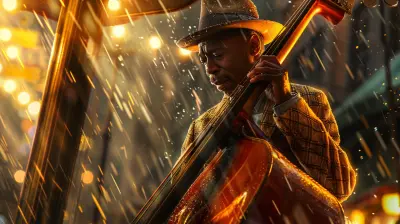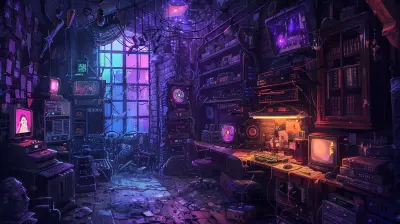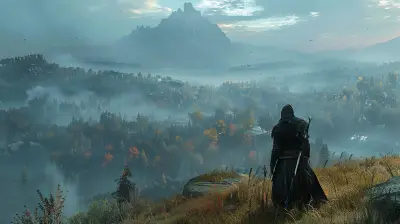The Role of Difficulty in Leveling Up
16 October 2025
Picture this — you're armed with nothing but a rusty blade, a weak armor set barely stitched together, and the will to survive. You step into a dungeon filled with unspeakable horrors, every corner whispering, “You’re not supposed to survive this.” And yet, you push forward. Why? Because deep down, you know that buried beneath that chaos, pain, and relentless challenge lies something precious: growth.
The truth is, every gamer who's faced a controller-snapping boss fight or an impossibly steep XP grind knows one thing — difficulty is not the villain. Difficulty is the silent mentor. The unshakable forgemaster of our digital selves. And in this epic tale of pixels and progress bars, difficulty plays the leading role in how we level up.
So buckle in, grab your mana potion, and let’s dive deep into the role of difficulty in leveling up.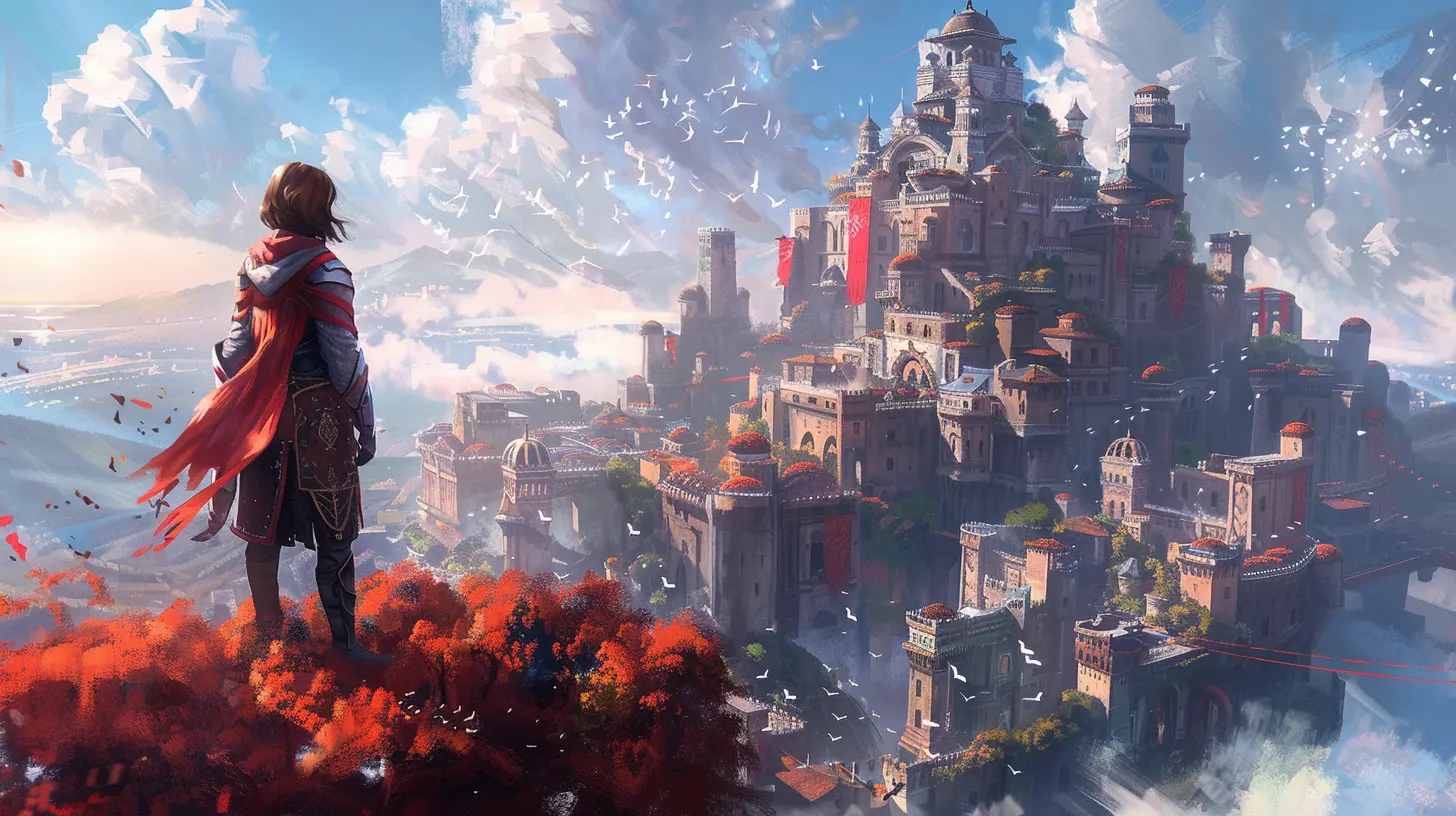
What Exactly Is "Difficulty" in Games?
Alright, before we start slicing through the meat of this topic, let’s clear up what we mean by "difficulty." In the gaming world, difficulty isn’t just how hard it is to beat a boss or how many enemies are thrown at you in a level. It’s something more nuanced. It’s a cocktail of mechanics, design choices, enemy AI, time investment, and most importantly — how much it pushes players out of their comfort zones.There are games that hand you progress like candy on Halloween night. And then there are the ones that make you sweat for every victory. Guess which ones leave a lasting impression?
Difficulty Isn't a Wall – It's a Ladder
Imagine leveling up like climbing a ladder. Every rung is a new challenge. Some are wobbly, some are solid, and some feel like they’re dipped in oil. But here’s the kicker: without that resistance, there's no climb. There's no sense of height. And without the climb, are you really leveling up?Games like Dark Souls, Celeste, and Hollow Knight are legendary not because they’re impossible. They're iconic because they make you earn your progress. Every death is a lesson, every boss fight an exam, and every victory a diploma in gaming grit.
These games don’t hand you power. They force you to grow into it.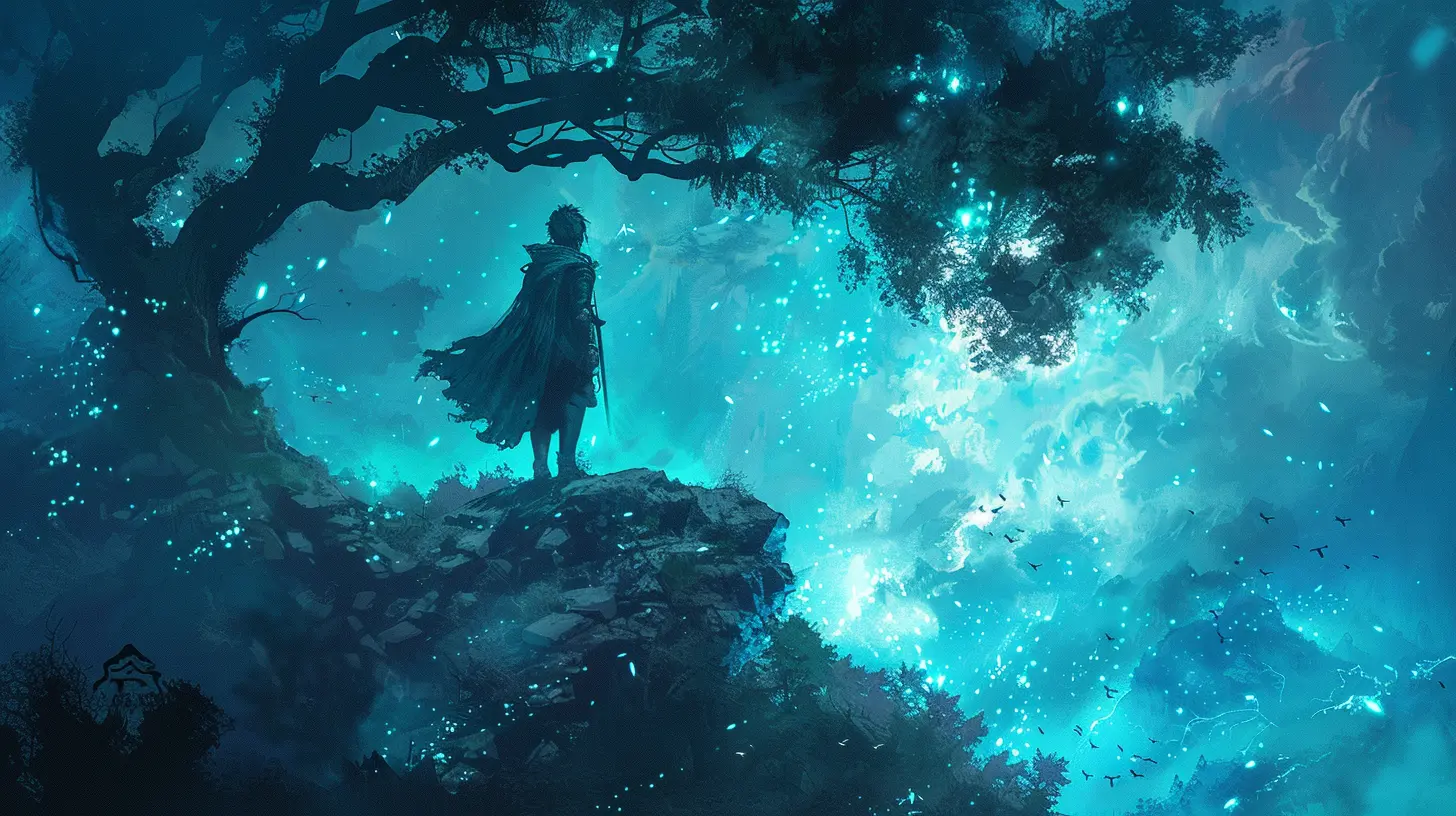
Frustration Breeds Mastery
Let’s be real — nobody likes failing. Rage-quitting is practically a rite of passage in tougher games. But here's a thought: frustration is fuel. It’s the ember that pushes you to try again, to study enemy patterns, to fine-tune your timing, to experiment with new strategies.I mean, isn’t that what leveling up really is? Getting better. Sharpening your skills. Becoming someone who can handle what once seemed impossible.
Think about it — have you ever grinned knowing you defeated a boss you once feared? That’s the sweet, delicious taste of mastery. And that only comes from difficulty.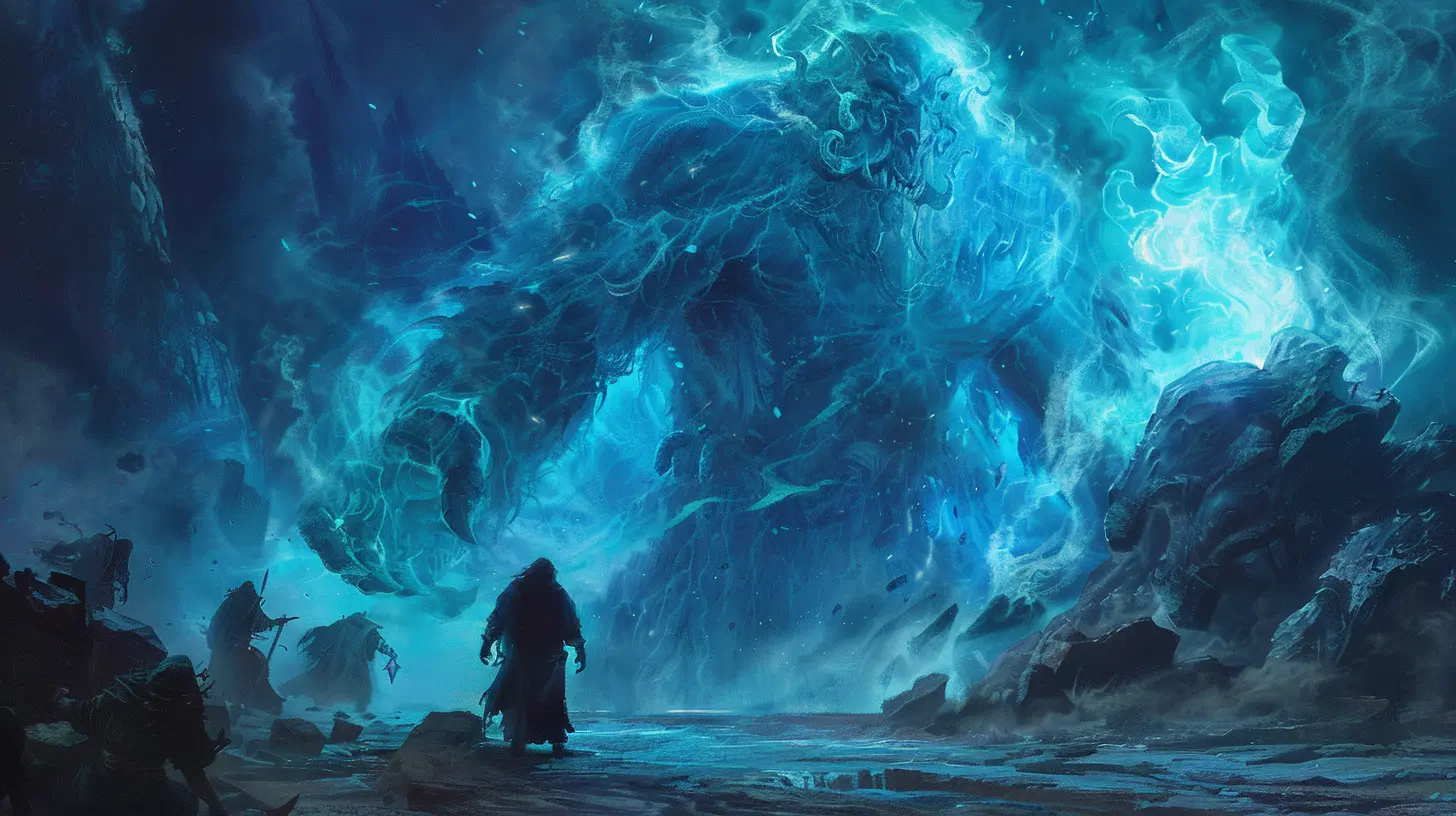
Easy Games Can Be Fun, But Are They Fulfilling?
There's a reason people enjoy casual, comfy games. Sometimes you just want to chill, vibe, and build your Animal Crossing island without breaking a sweat. And that's 100% valid.But here’s the flip side — when a game offers zero resistance, does leveling up even feel meaningful? If XP rains from the sky, and loot chests pop like confetti, where’s the challenge?
Now, I’m not saying every game needs to be punishing. But the real magic happens when a game walks the tightrope between doable and difficult. It shouldn’t make you feel helpless. It should make you feel hungry.
The Psychology of Difficulty: Why We Crave the Struggle
Believe it or not, there’s a psychological itch that difficulty scratches. It’s called the “flow state." It happens when your skill matches the challenge. Not too easy, not overwhelming — just the right amount of struggle to immerse you completely.That’s what good difficulty does in games. It puts you in the zone. Every jump, dodge, and swing of the sword becomes instinctual. You’re not just playing — you’re in the game.
And when you level up in that state? Oh, buddy, it sticks. It feels earned. It feels real.
Adaptive Difficulty: The Game That Grows With You
Some developers are crafting experiences that evolve based on your performance. Ever heard of adaptive difficulty? It’s like the game is watching you, learning from you, and adjusting the weight on your back just enough to keep things spicy.This balancing act keeps players from getting bored if they're too good or frustrated if they’re struggling. Think of it like a personal trainer in game form — challenging you based on your pace, not someone else's.
Games like Resident Evil 4 used this technique under the hood, subtly tweaking enemy toughness if you were steamrolling too easily. Sneaky, huh?
Multiplayer Difficulty: Where the Enemy Is Human
Now, let’s talk PvP. Multiplayer games introduce an entirely different flavor of difficulty because now, the challenge isn’t a pattern or a script — it’s another person. Humans are unpredictable. They don’t follow rules. They taunt, trap, sabotage, and surprise.And in that chaos? Your true skill is revealed.
Whether it’s a tense 1v1 in Street Fighter, a sweaty match in League of Legends, or a clutch play in Apex Legends, multiplayer difficulty is the world’s way of saying, “Let’s see what you’ve got.”
And guess what? When you climb that ranked ladder, when you improve your K/D ratio, when your team shouts your name for that game-winning play — you’ve leveled up in a way no AI could ever measure.
Grinding and Difficulty: A Love-Hate Relationship
Grinding. Oh yes. The age-old ritual of repetition. Some players love it. Others would rather eat a Joy-Con.Grinding can be a form of artificial difficulty. Instead of tough mechanics, the challenge is time — how long are you willing to invest? It’s used heavily in RPGs, MMOs, and mobile games. Sometimes it’s satisfying. Sometimes it’s a grind in the worst way.
Here’s the trick: good grinding ties into progression. Bad grinding just eats your time.
Games like Monster Hunter or Persona 5 make grinding feel rewarding. You’re always chasing a specific upgrade, a new skill, or story progression. You're not just killing time, you're building a legacy.
When Difficulty Fails: Bad Design Vs. Fair Challenge
Not all difficulty is built equal.Let’s call out the elephant in the room — unfair difficulty. The kind that punishes you not because you messed up, but because the game’s mechanics are clunky, the hitboxes are broken, or the objectives are vague.
That’s not challenge. That’s bad design.
Fair difficulty is different. It gives you the tools, but demands you learn how to use them. It’s the difference between “You died because you didn’t dodge” versus “You died because the game glitched.”
We respect the first. We uninstall the second.
The Real-Life Spin: Lessons From In-Game Difficulty
Let’s pull back for a second. Look at your own life. Isn’t it kind of like leveling up in a game?Every obstacle you’ve faced — school, jobs, relationships, health — comes with its own difficulty curve. And just like in games, if everything was easy, you wouldn’t grow.
Games that challenge us reflect life in the rawest ways. They teach patience. They teach problem-solving. They teach us that we’re capable of more than we initially believed.
So the next time a boss fight feels impossible, remember: you’ve beaten harder stuff in real life.
How Developers Balance Challenge and Reward
Game devs are wizards. Seriously. Balancing difficulty is one of the toughest things to get right. They have to guess how skilled you’ll be, how much time you’ll commit, and how much punishment is too much.This is why difficulty settings exist — because not everyone plays the same way. Some want a story. Some want a trial by fire. And every player, regardless of skill, deserves the experience they came for.
But when devs nail that balance? When a challenge is brutal but beatable, when every level-up feels like a triumph? That’s when a game becomes unforgettable.
The Sweet Spot: Where You Suffer, Then Soar
The best games are the ones that hurt you a little, just enough to make the win taste better.They’re like tough coaches yelling from the sidelines, “Again!” even when you’re gasping for breath — not because they want you broken, but because they know what you can become.
And when that level-up animation flashes on screen after hours of trial and error? That’s not just digital growth. That’s emotional payoff.
Final Thoughts: Embrace the Struggle
Leveling up is never supposed to be easy. In fact, the struggle is the point. It's where we find our power. Where we sharpen our wits. Where we earn our stripes.The next time you curse a brutal platformer or slam your desk after a PvP loss, take a breath. Smile. Because if it’s hard, it means you’re growing. That difficulty? It’s your XP in disguise.
So keep going, hero. The grind is real. But so is the glory.
all images in this post were generated using AI tools
Category:
Leveling UpAuthor:

Lucy Ross
Discussion
rate this article
1 comments
Seraphis Hardy
Ah, the sweet spot of difficulty—where every defeat feels like a plot twist in a soap opera! Who knew grinding XP could double as cardio? Remember, if it’s too easy, you’re just hitting ‘A’ instead of ‘living your best life’! Game on!
October 18, 2025 at 3:05 PM

Lucy Ross
Absolutely! Finding that perfect challenge keeps the game exciting and engaging. It's all about balancing fun and growth—let's embrace the grind!
